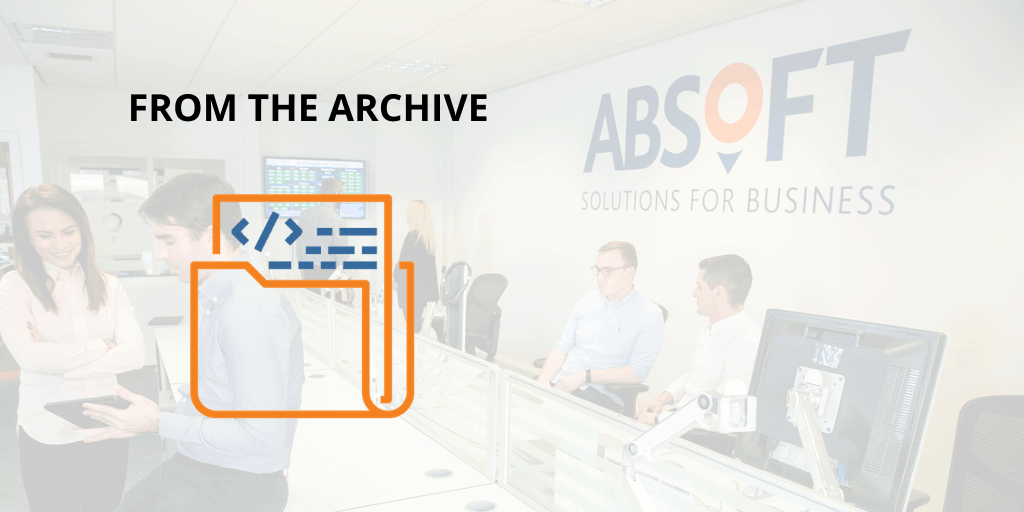As the oil and gas industry continues to evolve and expand, companies face the challenge of adapting their operations to fit a constantly changing business environment – with internationalisation and differing compliance regimes in multiple locations the key drivers.
Investment in Enterprise Resource Planning (ERP) business software has increased exponentially to cope with these changes, providing streamlined processes and offering improved efficiency across all areas of commercial management.
SAP is an ERP system used extensively by operators, oilfield service companies and the wider supply chain internationally, to deliver key services including financial and human capital management, procurement, supply chain and customer relationship management.
Significant benefits can be gained by effective use of SAP; however ensuring that the system remains operationally fit for purpose and achieves its full potential following the initial implementation requires an ongoing commitment on the part of a business.
It must stay on top of new technology innovations and functionality, as well as ensuring compliance with evolving regulatory requirements. Add to this the need to enhance, update and roll-out processes as circumstances change, and the task can appear daunting.
Engaging a trusted advisor, with extensive skill and experience in system implementation, and in the delivery of ongoing maintenance, support and training can be invaluable in helping a business to manage these complexities.
Absoft works with several global operators and major service companies at a range of levels from software and process enhancements in key areas such as logistics, finance, HR and maintenance, to the development of best practice models and full-scale implementations.
Aside from ensuring an operational system remains fit for purpose, any company expanding into overseas markets following domestic success has a series of issues to consider. Managing the movement of people and assets across borders, handling multiple currencies and languages, and ensuring compliance with differing legislative standards for assets and equipment, as well as fiscal requirements, create challenges for businesses.
The harmonisation of the systems which manage these operations across regions is vital to success and is an area where Absoft finds itself increasingly called upon to provide advice in relation to best practices in aligning and enhancing business processes with SAP functionality, including country-specific scenarios.
These complexities are further increased for any oil and gas business expanding into Norway and which therefore need to ensure Norsok and Norway Oil & Gas (formerly OLF) compliance – the most exacting and stringent standards in the energy sector – are met. This is a key consideration on which Absoft is often asked to provide guidance.
Equally, Scandinavian companies making the transition into the UK, or North America and the Middle East alongside counterparts from the UK, will need to ensure systems are rationalised and fit for purpose when operating in more than one area.
In addition to meeting the challenges of investing in a foreign marketplace mentioned above, there are considerations associated with process optimisation and cost recovery.
Process optimisation is a vital factor in ensuring consistency across the regions and is central to companies’ chances of success.
Absoft frequently finds that the documentation of processes and procedures is allowed to stagnate, particularly where companies have put systems in place but made no investment in ongoing maintenance and upgrade, or further enhancement of the software – simply using the software as-installed without investigating its potential.
In situations where a change in ownership, management or procedures has taken place, standard processes which are a key part of an SAP environment have often not been updated or rolled-out accordingly, creating a gap in the company’s organisational setup.
Where country-specific units are being linked, for example when unit A is in the UK and unit B is in Norway, the streamlining of processes to cope with compliance or currency variations also needs to be focussed upon.
Take a historic investment as another example; where commitment to SAP was first made a decade ago in one part of the business, or through a joint venture, another may have recently upgraded its systems – making process harmonisation between the units an absolute priority to ensure efficiency and best value.
Regularly reviewing processes and procedures in key business functions such as finance, human resources, plant maintenance, project systems and materials management can be a significant route to improving efficiency.
Revisiting operational requirements, for example to address new issues or industry requirements, and to improve the way the system is being used, requires ongoing project management and support, and is a key stage at which a trusted advisor can be brought in to assist in-house teams.
This may present itself in a number of ways, from the provision of subject matter expertise on a targeted basis, through to a partnership in creating a centre of excellence where this expertise is used on an advisory basis and/or in partnership with internal super users or analysts.
From a cost control point of view, a significant challenge within the upstream supply chain is the offshore returns process. Production, exploration and projects staff are focussed on getting the job done on time and to budget – meaning less emphasis is often placed on what happens to surplus materials and equipment to be returned onshore.
Improving the management of returns is a key factor in terms of financial control, particularly for companies with multi-region operations, where poorly managed returns can amount to significant value leakage through inflated balance sheet inventory. Controls around this process can be handled through SAP ERP, with results analysed through SAP Business Intelligence (BI) tools.
In terms of managing cost recovery, SAP offers standard tools to not only recover parent company overhead from joint venture partners, but also to automate potentially complex rules and processes in allocation of centrally incurred costs, which are allowed to be recharged to joint ventures under the terms of joint operating agreements.
Despite the demands created by the drivers outlined above, it is also best practice to ensure the system is regularly updated to provide the latest functionality and to build on its capability through the addition of new services and solutions to allow company systems to perform better.
SAP’s enhancement package strategyfor SAP ERP simplifies the way customers manage and deploy new software functionality. Customers can electively implement these software innovations from SAP and activate the software upon business demand.
In Absoft’s experience many companies remain uncertain about what functionality is relevant to their business and so we have developed a test environment to allow new enhancements to be evaluated by our clients’ offline from their day-to-day activities, minimising the impact of potential enhancements on business operations before their relevance has been tested and evaluated.
Beyond core ERP, Absoft has witnessed an increase in the use of complementary systems for planning and analysis, as organisations move to make data more widely available across their operations. This offers a competitive advantage in terms of improving decision making processes and increasing operational efficiency.
There is a huge range of business planning and analytics tools on the market but in Absoft’s experience, companies struggle to decide on which products are best suited to their needs, how to make a start in using the solutions and the best ongoing plan of attack. A trusted advisor can play a key role in helping to bring together the needs of business and IT departments, advising on the best combination of solutions and helping to develop a roadmap to support the strategic use of analytics and planning solutions in the business.
While companies across the energy industry recognise the benefit of investing in improvements to processes and software, the task of implementing changes which will ultimately deliver efficiencies and cost savings can be daunting without access to appropriate expertise and support.
Investing in a trusted advisor to ensure a system is tailored to a company’s requirements is a top priority, which will allow the business to adapt and remain competitive in the dynamic oil and gas sector.
By Scott Simpson.







